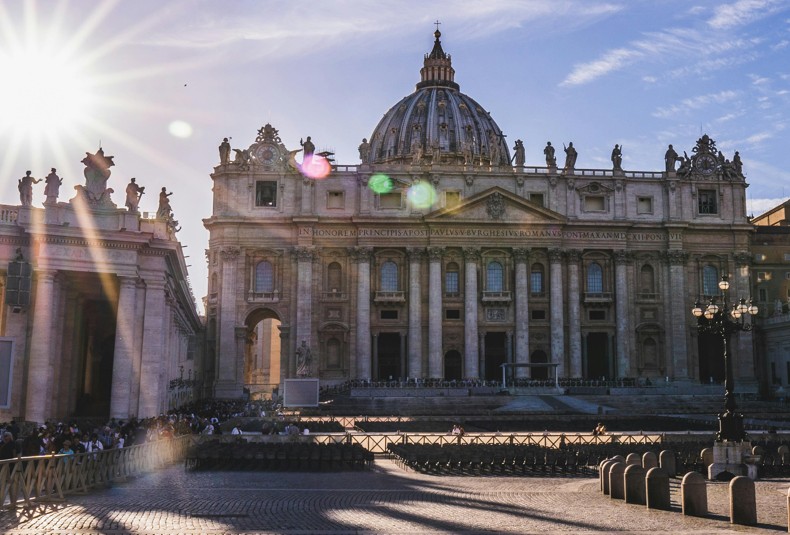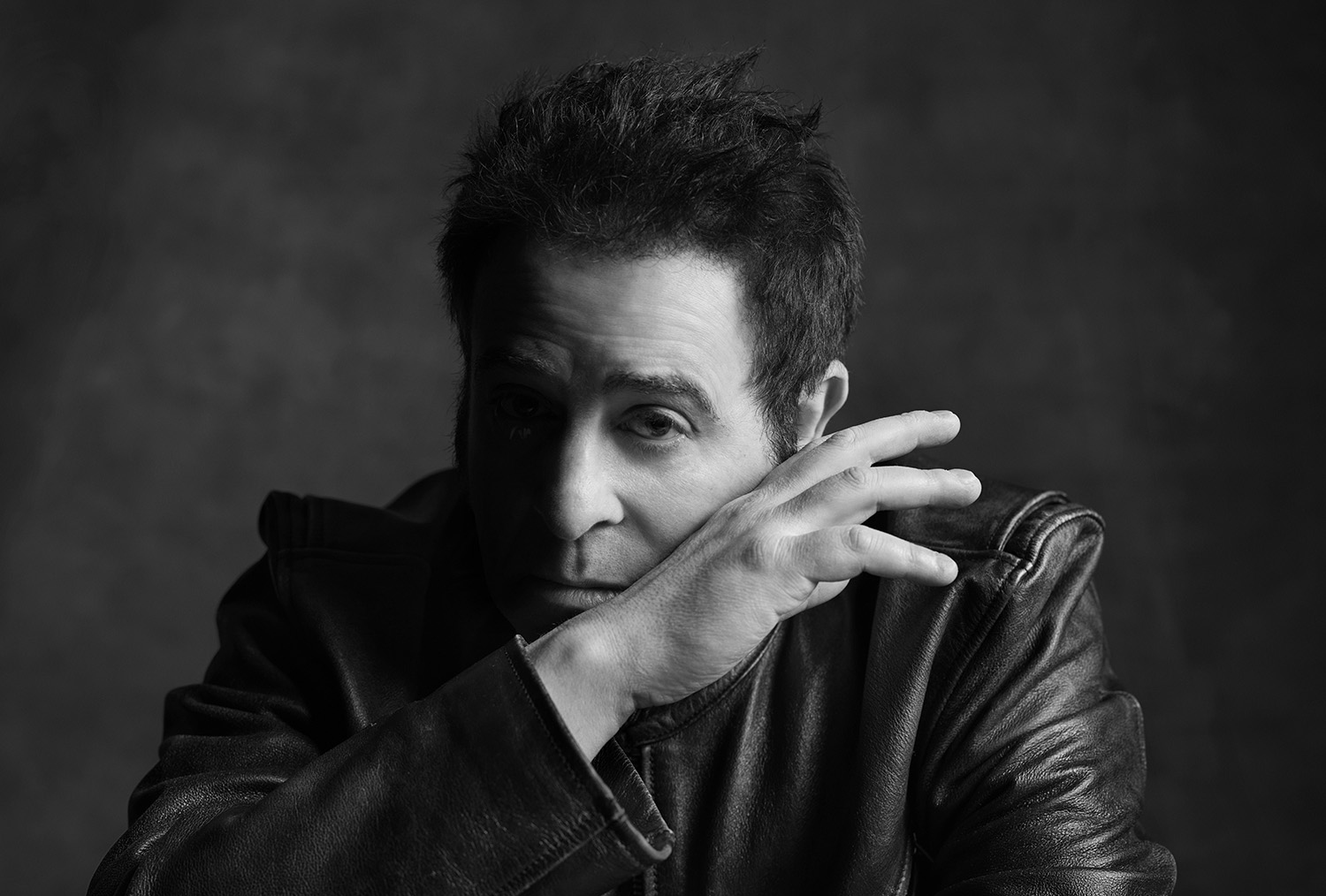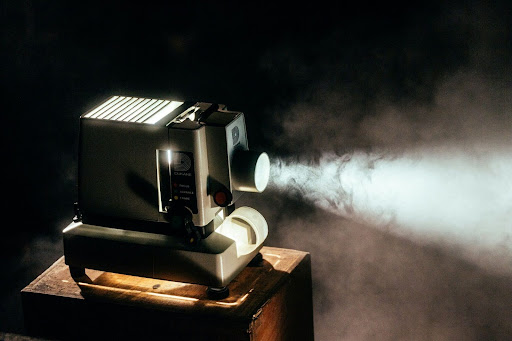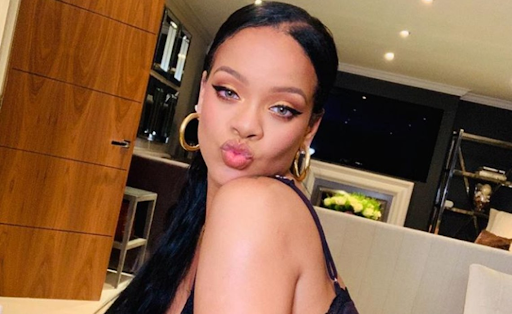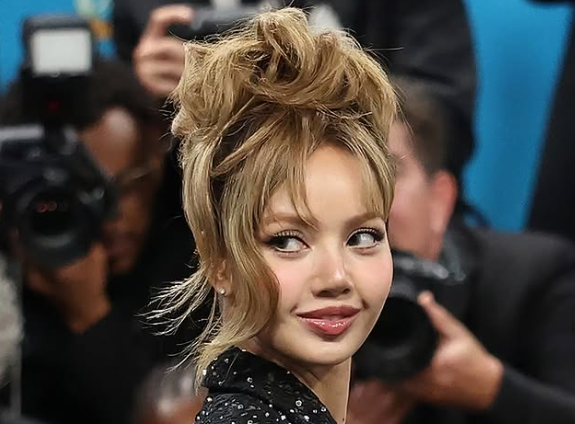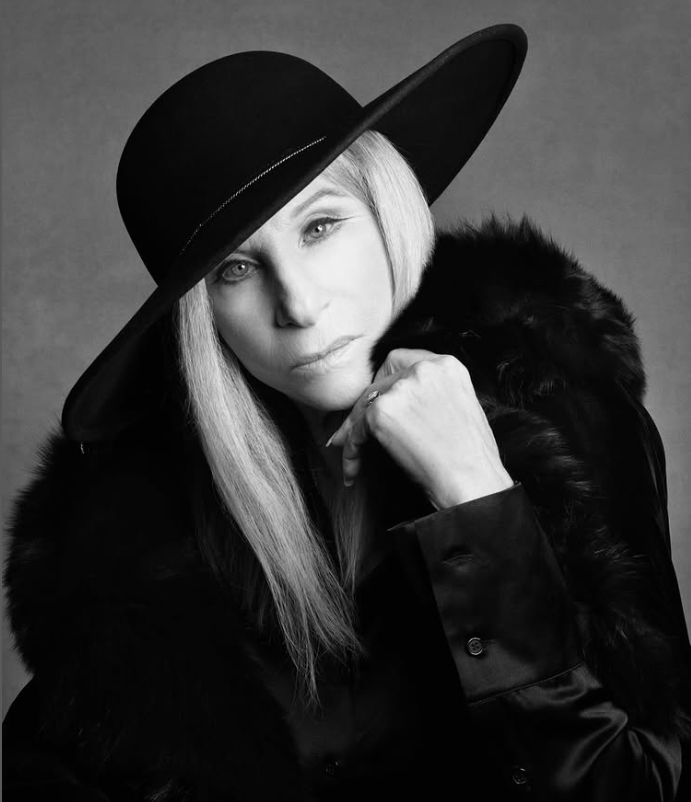
This is a transcript of our interview with Blood Cultures. Listen to it on Crossroads Cafe, and read more about it here.
POPDUST: Welcome to Crossroads Cafe. I’m your host, Eden. Today’s episode is an interview with Blood Cultures, whose new album, LUNO, is an innovative and brave expedition into the farthest reaches of multimedia storytelling.
The interview was genuinely mind blowing to me, as it touched on a lot of my favorite themes, which include [Carl] Jung and archetypes, the collective unconscious that unites us all, death, rebirth, cults, meta-narratives, the shadow self and its relationship to social change, and much more. It’s all here, and I think it just might hold some keys to how stories can help us reach a more integrated state of being on a collective as well as an individual level. I really hope you enjoy this interview as much as I did. This is Blood Cultures.
Thank you so much for being on the podcast. I’m a big fan of your music, and really, really excited to get to talk to you about some of your new work. I’d love to hear about the changes that your band went through over the past year. You’ve described it as a kind of rebirth. What did that look like for you?
BLOOD CULTURES: That’s a good question. I mentioned, as soon as we started this, that I don’t really give out my name, I don’t really talk about myself. That’s what the project really is… It’s about Blood Cultures, it’s not really about me.
It’s sort of this idea where I can separate myself from the artwork and from the music and all of it and really allow the listener to experience the music and the artwork [in the] context of their own life, rather than mine.
I don’t know if you feel this way, but whenever I find a new artist, my first impulse is to look up stuff about them and try to understand them or try to look into their history or whatever. And I think that in a lot of ways, that can be a good thing. But it can also be a bad thing, and no matter what it will always affect your experience with the music. I really just wanted to try this experiment where it was like…there was none of that. It was just you and the music, and that’s all.
So in a way, while that was the original intention, and it still is the core value or the core principle of the project, I think what really changed was what I was talking about. In a lot of ways I didn’t talk about my identity. Identity was always sort of…questioned, but it was never talked about. I like raising questions. But I don’t necessarily like giving answers. I don’t really like giving the context, as I mentioned.
But I think in this case, I felt like I needed to talk about what I felt like the music was about and what I felt like and where I was at. I needed to give the context in terms of who I was and where I’m coming from.
Because I think without the context, a lot of what I’m doing could be misunderstood. And a lot of it could be misinterpreted in a way that could be maybe destructive or not as I intended.
We’ve always played this tricky… game of balance — of like, what is the right level of context we can give, so this can be interpreted in the right way, while not, you know, affecting the listener’s experience in a negative way, but in ways that will enrich the experience?
So I think that really, the change was the fact that I was going to talk about my ethnic identity. And that affected the music and the direction of the artwork and the direction of everything.
I think when you listen to the music, and when you see the artwork, and when you see Blood Cultures when you have the context of this perspective, my perspective, my life, I think you get to access it in a more direct way, rather than having questions that might lead you to think it might be, you know, insensitive or wrong. You can interpret it however you want.
[So] why was it a rebirth? I felt the need to do this change, because…I wanted to talk about my ethnicity and my identity. As an anonymous project, you get the privilege of being like, oh, nobody’s gonna talk about my race. And that’s kind of a good thing. You know, I think that that’s sort of a beautiful thing, where it’s like, oh, it’s not about that, and we can kind of live in this utopian society for a second, and be like, okay, cool, these problems don’t exist here.
But it just doesn’t reflect my actual experience on this Earth. It doesn’t reflect the way that I’ve been treated by society. So in a way, it was disingenuous. My ideal is still that race, you know, it doesn’t matter. And even to some degree, your ethnicity, your culture, etc. — these are things that really divide us. In a lot of ways, I think it’d be great if we didn’t have to talk about those things, and we could just live in a society where those things weren’t issues.
But for me, it’s always been about honesty. And I don’t think I can be honest anymore without talking about this. Because it’s just not my life experience.
I’m not a white person, I’m not. I’m not a Black person, either. I think that South Asian American identity is something that is very, very much not explored in our cultural conversation. And I think when you kind of come at this with the idealistic thought that race and and all these things don’t matter, which is still my ideal, it’s just not recognizing the truth — that racism, and that ignorance, [are] still prominent.
It’s sort of like a disease, you know, and I have to think about my involvement in that, and I have to think about my responsibility in talking about stuff like that. Because if I’m silent, I think I’m just as bad in a lot of ways. Because I’m not sharing my experience; I’m not standing up for my ideals. I’m not living, you know.
I would have loved to have somebody really champion and stand up for South Asian people, people of color, people like me, growing up; but in a lot of ways, we didn’t have that, especially in the indie music sphere. So I think it’s just important to talk about.
Totally, and it must have been a pretty big change, because I know anonymity is so central to your project and your identity as a band. What did it feel like to begin to reveal these details?
It was weird. I think it was uncomfortable. I don’t think that that’s a bad thing, though. I think that it was kind of scary. And I was just a little bit worried about it, because I think, in a lot of ways, I was at a point in my life where I was either going to just start a different project or something to talk about these things or, or change the project itself.
In a lot of ways, it felt like the death of the old. Like you kind of can’t change without leaving who you were behind. And that’s sort of what the record is about. You know, as you grow and as you change, you let go of the past, and in that past that person that you [were], and in a lot of ways that’s that’s scary because you’re really looking at your mortality in the face; and you’re looking at, you know, this this great chasm of change…and you’re kind of leaping into the unknown.
And, of course, of course, the response was so positive, which was just so vindicating. That’s the right word. It was just such a relief…and it kind of proved, once again, that…yeah, you should be doing this stuff. This is the stuff that you should be moving forward with and talking about and addressing.
Totally, yeah, I mean, as you said, there’s definitely a lack of representation in music and all over, to say the very least. So I do find it pretty powerful that you retain your name, you retain so much about your identity, but you say: This one thing is an important thing to share, because it’s so powerful. And it’s such a…point of connection. I would imagine it would have been a strange experience, to finally reveal that detail.
And I know that your album is all about change and self-discovery as well. You have an album coming out, called LUNO, and I’d love to hear how the themes of change and self-discovery appear on that album, and if there are any other themes or takeaways that you want to talk about in relation to the album.
Thank you for asking. It’s all about — like you said, it’s all about change. And not only self discovery, but rebirth, death and rebirth.
In a lot of ways, you can’t have change without some sort of rebirth process, and you can’t have rebirth without death. I was really inspired by the works of Carl Jung, Joseph Campbell, and even Dan Harmon, who’s a writer of shows like Community and Rick and Morty.
I was inspired by these folks because they all kind of talked about — Joseph Campbell, really, was the one who brought up the idea of the hero’s journey, which is this sort of archetypal journey. It’s the way we tell stories. It’s sort of like a storytelling device, sort of this story arc of this character.
And the character, the hero, in this case, is somebody who goes into a new world and has to face themselves in order to come back to their current world to solve their problems. So in terms of the way we tell stories, it sort of always follows this structure.
And… it’s not a storytelling device in that you have to format your story to fit this thing. But you know, if you look at the way we’ve told stories for thousands of years, it just sort of follows a pattern.
And it kind of always has this story…this arc of this hero going out and going into this unexplored world and having to face themselves and go out of their comfort zone. And then they change forever and return, being this new person.
And in that, there’s this sort of cycle. It’s always been. The way it’s broken down — even the way Dan Harmon, at least, breaks it down — is this sort of eight step cycle. The hero goes and enters the world, and so on, so forth.
But what the stories always tell are the stories of change. If you look at the Bible, and if you look in popular culture, in terms of like Star Wars, the Matrix, Lion King, you can see, this is just the way we tell stories. Every hero faces the same arc. They always, in a way, die and are reborn.
And that’s just sort of the way we tell stories. And I was kind of curious as to why that was. And that’s kind of where Carl Jung comes in, with his ideas of the archetypes.
In terms of Campbell, he was a student of Jung, and Jung had these similar ideas of these archetypes and the hero’s journey, and so on and so forth. That’s really where the roots are of Campbell’s theory, or Campbell’s idea, I should say. So [Jung] would look at the archetypes of why, you know why we retell stories this way, and he would examine culture.
[Through] all of this, Campbell and Jung would both examine culture and really try to understand why we told stories certain ways. Because there’s a lot of parallels, you know. You [can go to] different cultures and hear the same stories. And I really enjoyed Carl Jung’s take on the moon and the shadow.
So in terms of Campbell’s hero’s journey, you know, what the hero must do is always face their shadow. And they have, like, an external character that sort of represents their opposite. But Jung’s concept of the shadow is that it exists within you. Your opposite exists within you, and you have this idea of yourself, but you have the opposite idea of yourself within you, or the unacknowledged self, which is the idea of the shadow. So it’s only by facing that unacknowledged self that we can really change and be reborn.
And if you look back at why we tell these stories, it all comes down to trying to understand the world around us. I was really fascinated by this concept, and these ideas of change, rebirth, and so on, and death as well. It’s always linked to nature. In terms of relating to nature, it’s always linked to the moon.
And I was really curious about that. Why is that the case? When you think about it, it makes a lot of sense. If you’re looking outside of the world at the sky, and you see this thing that is changing every day, and [every time you look at it] it looks different, its shape is different. And it goes from being nothing to being completely a full sphere. And every step of the way, it’s growing and changing and becoming this different thing. So it’s always represented the cycle of life, rebirth, and death. That’s what the moon represents archetypally.
So that sort of became the central figure for me in terms of the way I wanted to tell the story. There are really eight phases. The moon can be broken down into eight phases, just as well as the hero’s journey.
So that’s the way it broke down on the record, which is eight tracks. Each one of them represents a different phase, or a different step in this journey. It’s all talking about the same stuff — death, rebirth, and change.
Blood Cultures – Set it on Fire (Official Music Video)www.youtube.com
You’re talking about some of my favorite content and my favorite themes. It’s pretty awesome to hear that you’re doing all this and you’re putting it into such a cohesive album. I’m really interested in, and have been thinking a lot about, those universal stories and hero’s journeys and those sorts of things. In terms of what you said there, I automatically thought of the seasons. I always think that we can learn a lot from seasons, which just cycle through death and rebirth.
And we’re so disconnected from the rhythms around us, but we’re part of them. I think that that’s really powerful. And it’s really powerful that you connected [the hero’s journey] to the phases of the moon. So is each song representative of a different step on the hero’s journey, specifically?
Kind of. I don’t want to say too much, because I feel like that’s something you can kind of take in as you listen to it. But I always saw this as his story in its totality. But…the way that I saw it, each one kind of stood on its own. Each one tells the story itself, but they do all kind of tie [together], and the way that the album is formatted follows that journey and follows the phases of the moon.
I know Jung was really into the idea of the reintegration of the psyche — the idea of building the shadow self and the conscious self into sort of a more cohesive whole. Do you feel like you were able to kind of reach a level of wholeness or in the process? Was it that kind of process for you or was that a goal of it at all? …It’s a tough question to answer. I mean, it’s always cycling.
I’m not going to proclaim that I’m a perfect person because I faced my shadow. But I think that the reason why I wanted to talk about this stuff was because, when you look at what’s happening in the world…
We started off the conversation talking about race and why we’re talking about race. And I think that the reason is because people are waking up to the fact that systematic oppression and ignorance is really corrupting and corroding our society. I think that it always has been, for the record, but…maybe now it’s just the time that we’re ready as a society to talk about it. Certainly not everybody’s ready to talk about it. But I think there’s this idea that people want things to change, they want the system to change, [and] they want change to happen.
And the question is, how do you do that? How does one change a system? How does one change these institutions that have been oppressive…for years? When you look at what an institution is, when you look at what a government is, when you look at what a system is, these are all people and ideas, and people with ideas. I think a lot of people have felt, and I’ve definitely wrestled with, hopelessness in the face of that.
But the truth is, when you think about these people, [they’re] just people. When you think about these concepts as just made of people and ideas, [they become] so much more tangible.
And then you start to see how things can actually change, because people can change. That’s a matter of belief and perspective. But I personally believe that people can change. If you believe that people can change, then you can change the system.
But how do you do that? How do you convince somebody [to change]? …You change the world by changing yourself.
But how do you do that, then? That’s sort of the question that I wanted to propose here: the idea of change and how it is actually possible.
My theory — and Jung’s theory, and the philosophy of the record — is that [you can change] through introspection, [and] by really acknowledging these darker sides of yourself and understanding your ignorances and understanding who you are in all of this. That is the only way you can actually change because, you know, there’s plenty of performative politics, plenty of performative acts of…I don’t want to be mean about it, but like fake wokeness, where you’re just doing something because it’s trendy or whatever.
But if you actually want to change, and if you actually want things to change, you have to take a pretty good, hard look at not only yourself but your society and humanity and your culture and what it does and what we’ve been doing. And that’s not easy. That’s scary. Because you might find something that you don’t want to know.
And you might find something about yourself that you don’t want to know, and you might find that maybe that you’ve benefited from something that has been destructive or hurtful to other people. But only by acknowledging those things, and only by accepting the fact that you are capable of those things and people are capable of those things, can you really understand humanity. And only when you understand those things can you actually approach it with a rational rather than an idealistic way of thinking.
Yeah, I certainly couldn’t agree more with what you’re saying. On the sort of performative wokeness angle — you always hear people who are like, oh, love and light and we’re all one race. [That kind of] spiritual bypassing is something I’ve been reading about. Just wiping over these systems that are literally embedded within us and that are deeply embedded in our culture and in each one of us will never lead to actual healing and rebirth. Reading things like Me and White Supremacy [make it clear] that it is all about looking at where these things start, within you, or within white people [in that case]. And [then you can see] where things go from there.
Have you seen Exterminate All the Brutes? I highly recommend everybody watch that. It’s probably the hardest thing to watch, you know; it’s brutal. But it is eye opening in terms of the origins of white supremacy and how it’s really affected our modern day. At one point it even says…this is the history that we all know, but we never acknowledge. And it tried to get into why that is. I think a lot of that is because we don’t talk about it.
And because in a lot of ways, we are idealistic — I’m no exception to that — in terms of what our thoughts are, in terms of race and so on. It’s that way of thinking that’s like: Oh, well, we’re all a human race and racism doesn’t exist. It’s true. That is a fact. But it doesn’t take away the suffering. It doesn’t take away the suffering that people have had to deal with for a very long time, and myself included.
I’ve also been, you know, been treated differently because of my ethnicity, because of the way I look, because of my place in this society. So even though I might have those ideals, [that] doesn’t reflect reality, right? In order to actually affect change, and to get to that place of idealism, and to get to that utopian society [where] we can all be one, we have to take a hard look at ourselves as a whole. We have to look into our shadow, and we have to look at our ignorances and look at what we’ve been blind to.
Yeah, absolutely. Even concepts like manifestation say that the [outer] world is just a reflection of your inner world, which I believe more and more. And if you look at the world, there’s a lot of suffering, there’s a lot of serious darkness, which is obviously coming from within. There’s a lot of shadows, which [are] obviously coming from within people somewhere, even if you’re not conscious of it. There’s no way to even start to liberate it [without]… I really believe in the power of naming, and looking your shadow self head on.
And obviously, it’s a long process. But I think you creating something like this is just planting another seed. It’s certainly planting seeds in my mind about different ways that this could play out. And I think there’s a huge amount of work that needs to be done. The pandemic obviously was a result of a mutation or a virus; but also, I read so much about people saying, actually, the real viruses [are] these systemic violences, this racism, that this is bringing out and highlighting. And I just feel like now is a time where people are sort of waking up to this idea that actually, the inner [one] might be a little more connected to the outer one than we normally think. So all that is to say: I think what you’re doing is really powerful, in a lot of ways.
Yeah. Thank you. I appreciate that.
I’m interested in you taking inspiration from Dan Harmon, because I’ve certainly spent a lot of time with Dan Harmon’s work this quarantine. What about his work influenced yours?
So I’ve been a fan of his for a really long time, and I watched a lot of his stuff growing up. And I know he’s become very popular now, and that’s really good. I think he deserves that because I think he’s a brilliant person. He’s always had this sort of breakdown of the hero’s journey and storytelling, and he talks about Campbell’s hero’s journey.
That’s a common thing that people will do in terms of writing; they’ll talk about the hero’s journey and Campbell’s theory, and they’ll break it down in different steps, but Harmon’s was the most simple, and it was really the most digestible way I could understand the concept.
It was a while ago that I saw his story. It’s called the story circle. He doesn’t even call it the hero’s journey. He calls it the story circle. But it’s these eight beats — these eight steps. And that was sort of the pattern that I used. If you look at Campbell’s version of the hero’s journey, there’s more… to it than that. There [are] 12 or maybe even more steps, depending on your interpretation of what he says. Different texts will have different versions of it. But I think Harmon’s was the most simplified and the most easy to digest at the time.
Yeah, interesting. Because I know that he certainly likes to mess with narrative, and he challenges a lot of traditional narrative structures. Like Community, especially, is just so meta and reflective. So yeah, it’s cool to know that he’s kind of inspired by these universal stories, as well. I’ve actually been thinking a lot about universal stories, because I know there’s the hero’s journey. But then there are a couple other main stories that thread through all of our culture. And I guess this might be an impossible question to ask, because it’s just really something I’ve been wondering about. But I’ve been reading a lot about the idea of new stories, and the need for a new story, or a very old story that is sort of a challenge to linear, embedded narratives. I’m wondering if you feel like — and again, this might not invite or not have an answer — but do you think true healing could come from sort of re-embracing very ancient stories and following them through? Are there ways to do this [through the creation of] new stories? And how do we grapple with those as storytellers?
That’s a great question. I don’t know about an answer. I think I can only really speak to my experience and myself as a creative.
What I’ve done in terms of nonlinear storytelling has been — I kind of created an alternate reality game, or a multimedia nonlinear story. It’s this story arc that is completely fictional, but it exists within a YouTube video series. There’s a phone number and a phone line that you can call, and there’s a fictional website and a fictional company, and it takes place in this fictional universe.
So all these sorts of things are the way that I’ve been telling this one story. And if you watch all the music videos, they’re actually all connected to that same universe. So it is this nonlinear story, where you can just watch the music videos, and you can be totally satisfied. Or you can delve into this deeper story, and really get this enriched experience of all this backstory and why things are happening in certain ways.
So I think that in terms of what that means… I don’t know if that is something that’s liberating or beneficial. I’m not sure. I think that people in general, we always want a pattern. I think that’s within our DNA and within our biology— we seek patterns for our survival. We see faces in ocean foam because we’re looking for them; we’re looking for a predator in the jungle that might get us.
So it makes sense why we look for patterns and why we’re trying to make sense of the world around us all the time. The idea of chaos is almost anti-antithetical to what it means to be a surviving human.
So to embrace chaos is to embrace death, in a way, because you’re letting go of the order of your existence, and of everything that you’ve known. So I think if anything, there’s bravery to it — to facing chaos, whatever that may be.
I think David Lynch does nonlinear storytelling really well, in a way that’s really ethereal and really just makes you feel a unique way. It frustrates a lot of people. I think [you] get upset because you’re like, oh, that doesn’t make any sense, because you’re trying to make sense of it. But what’s so beautiful about him as an artist, I think, is that he’s not concerned about your brain; he’s more concerned with your heart and the way you feel about it. And if it makes sense to you emotionally, that’s all that matters to him. And I think that’s such a beautiful way of looking at it, and that sort of was my approach for my multimedia stories.
That’s a perfect answer. I super love everything you’re saying. I’ve definitely thought a lot about multimedia and nonlinear storytelling, but I haven’t really seen many examples of people actually doing it. So that is really amazing. I’ve always thought that in liberating the story from one medium… there’s a lot of potential there, beyond structures, beyond words. Like what Lynch does. I’m also a big fan of his work.
So, I’d love to hear anything you’re able to share about the project, and how it connects and threads around the videos.
So there are about three videos on YouTube that are sort of where you should start, probably, if you’re trying to get into this. It’s hard for me to say without… I think that the journey is really the fun part, testing things and seeing if they work. So, you know, there’re a lot of things that the characters are saying and doing and there’s a lot of information that is being displayed that you can actually use. There’s a phone number there in the YouTube video, and there’s a… ’90 style infomercial. That’s the YouTube video, and it’s about this person trying to sell you something.
But the infomercial has been taped over, and there’s something a little bit more insidious in the tape. I can’t really say much more beyond that. But there’s a phone number attached to it, and a website attached to it. And once you dive into it, there’s a whole backstory that really ties into the record and ties into the themes of the record and the narrative of the music videos.
That’s really cool. How long ago did you start planning this? What was that process like?
It started six months ago, so it’s been an ongoing thing that’s been slowly doled out over time. I think the concept was sort of to do something that was really engaging for the audience. We weren’t able to play live or do any touring. So in order to kind of create this engaging environment, my idea was to create this multimedia story so that you can have an experience within a fictional world, and you can really dive into it.
So that’s kind of why it started. It’s slowly been building to this point. We had the opportunity to do a DJ set on Spin, so we actually used the character from the infomercials to run the DJ set. He’s this older gentleman, and he’s just, you know, really going crazy on the turntables. And it’s really cool.
[A lot of viewers may not have] engaged with the infomercial videos, so they might have been a little bit confused by that. But yeah, there’s a lot to it. It’s inspired by a lot of things, I guess, but it’s mostly inspired by Heaven’s Gate, the death cult.
Okay. Tell me more about that.
So Heaven’s Gate…are you familiar with their website?
No, I actually just know about the cult.
So they were a suicide cult. [On the day] the Hale-Bopp comet…went over the earth, they thought that was sort of the spaceship in which they would ascend to heaven. So they…die, they kill themselves. But not all of them — they left a couple people behind. And I’m not sure if there’s one or two, but they left one person in charge of the website. So there’s one person that is still responsible for this website that is still active to this day. And you can go on the website and it looks like it’s still from, you know, the mid ’90s.
And it’s such an interesting thing that this person was left behind in charge of running a website and answering emails, while everybody else was ascending to heaven, in their mind. So it was sort of inspired by that, and by this idea of ascension and what that means.
There’s a lot of the themes in the album reflected in there. And it was also a really great way to plug a lot of the music videos and there and tease a little bit of the music, so people that really engage with it could get early access to clips to the audio, or to little bits of the videos and stuff by engaging with the website.
That’s amazing. I’d love to hear more about the theme of ascension. Where does that appear?
I mean…I feel like there’s a whole religion here. There’s a whole fictional religion here that has its own philosophy and its own deities and prophets. So it’s hard to get into the whole backstory of it without spoiling anything.
In terms of ascension and what that means, there’s a lot of themes of, like I mentioned before, rebirth and death — in an ironic way, or in a way that’s very, you know, honest. And in this way, it’s a little bit more on the nose, a little bit more about having fun with it.
I don’t know if it’s obvious, but [of course]I don’t want people to actually follow this guy. What happens to you if you’re going on this journey, and you’re sort of following this crazy, this crazy madman? And how does it tie into the greater Blood Cultures world? How does it tie in to us?
Those are the kind of questions that will be answered, you know, either through you as the player or as the observer, or through what you discover.
I don’t know if I answered that question.
I’ll just have to experience it. I mean, you’re like blowing my mind right now. It’s so interesting to hear all these themes spoken about together in one project. I don’t think I fully understand what it is, though. I guess the listener or the player just has to experience it.
It’s called Operators Are Standing By — that’s the name of this series. If you want to start, just search that on YouTube, or on our YouTube channel, and I think that’s a good place for it. It’s, you know, just fun.
Operators Are Standing By – Part 1www.youtube.com
I think if I started to talk about it, you wouldn’t have as much fun because you would kind of know what’s happening. So I would just start watching the video and just see what you want to do with it. There’s a lot of stuff that people have explored and a lot of things that I’ve hidden in there that, you know, if you come across and you discover them, you’re like, oh, wow, that’s really interesting. And then, you know, something happens in the music videos. It just adds to the experience. I’m sure there’s a lot of people who have not checked that out that are still fans of the music. So I would check it out.
Yeah, that sounds pretty mind blowing. I mean, I’ve always been interested in the idea that there are games among us, like different levels of experience that you can reach. I don’t know if you’ve seen The OA, but I feel like they do that really well in the second season. But yeah, that’s pretty awesome and I’m very excited to explore it. I’m just so curious about it. I guess you don’t want to say too much. But how did you plan it? Did you kind of have, like, a big spreadsheet where you laid everything out, or a big map that you put everything on?
I mean, speaking of chaos, there was a lot of chaos. A lot of it was about the concepts and the ideas of what I wanted to explore, and how I wanted to tell the story were there. But a lot of it was open.
I think before working on this alternate reality game, I was more focused on the music and the videos and the visual component. But what I really wanted to do was collaborate with more directors. It was about really allowing other people to take their vision and do what they wanted. I had to keep it open and let these directors really tell their story about what the music meant to them. We were still involved in terms of the direction of those videos, but in terms of the story direction, we weren’t necessarily directing them ourselves. I kind of wanted to be more hands off, so I let those directors really do their thing.
[I worked with] Sam Kristofks Christoph who directed “Beneath the Moon and Me” and Charlie Denis who did “Set It on Fire” and future videos to come. And even “When the Night Calls” with Celine — through all those, we were helpful, but not really involved.
We kind of allowed ourselves to work around the story that was presented in the videos, and it made it all work together. Except for, actually this last video, which is done by a director named Berthold Wahjudi, who’s a German director. He wanted to work really, really closely on the story together, and he really wanted to incorporate a lot of elements into it from the game and from the universe that we’ve kind of created.
So, we spent hours diving into the mythology and the symbols and what everything means, so that he could incorporate them into his video. This last video — which we’re going to be releasing with the with the record on the 28th — will really reward those players and really reward those people that have been engaging with the additional material and the additional story, because they’ll see a lot of a lot of recognizable things, and a lot of things will probably make sense to them.
Blood Cultures – Cabin Fever Freestyle (Official Music Video)www.youtube.com
Amazing. So I imagine there’s all sorts of Jungian and archetypes added in there and things like that.
Yeah, especially in the first music video. There’s a lot of Freud. In the second there’s a psychologist character who really resembles something in between Freud and Jung.
I definitely see the Dan Harmon in that because you’re sort of taking this super meta approach to the storytelling. These themes always appear in our stories and in our minds, but by gamifying them and breaking them and reflecting them back, I feel like you’re kind of doing this reflective little winking at the audience, like a winking at the camera kind of thing, which is very cool.
Yeah, I mean, when it comes to Dan Harmon and meta storytelling, I think it was Kafka that started doing this — that started to acknowledge the camera and that started to acknowledge the fact that this was a show or this was a story. And this is fake, you know. I think that makes you more aware of yourself.
I think that there’s something really, really interesting to that. You can go down a whole loop with that. But I think that in terms of what you’re talking about, in terms of chaos and nonlinear storytelling, I think that the first step is acknowledging the story, acknowledging that there is this arc and that there is this linear pathway. So when you veer off of that, [even] unintentionally, that’s a choice. It’s not that it’s bad writing — it’s that this is a choice to to actively go away from the status quo.
So acknowledging the status quo — I think that’s the first step in getting to that point of nonlinear storytelling and having that be more accessible. The fact that Harmon has become as successful as he has and has created multiple projects that have permeated the public consciousness and has… really tapped into something… I think that just says a lot about where story can go, and maybe [it says something about] the future of what you want in terms of nonlinear storytelling.
I think that one of the early steps is acknowledging the story. And then from there, you can go on to embracing a little bit more chaos.
Yeah, I mean, similarly to acknowledging the shadow…There’s that quote, if you look at the abyss, it looks back at you.
Yeah, that’s Nietzche, right?
Yeah, same idea — if you’re looking at the story, or acknowledging the matrix, that would be the first step to getting out of it. You could go pretty far with that, into dreams and reality and things like that. But yeah, that’s a really cool answer to the new story question, is kind of all I have to say. Whenever I talk about this, I always kind of go back to the capitalist narrative, which is a very cemented story that is really specific. And when I think about exiting that narrative, I think of nonlinear storytelling and embracing a possibility that doesn’t even seem like a possibility at times, because we’re so embedded in this framework of capitalism. We’re embedded in the story that everything has to be constantly growing and there’s no other way than constantly upward.
I think that’s a good parallel. If you think about the way we’re institutionalized and the way we’re raised — I don’t want to speak for everybody, but in terms of American society and American culture — what we’re really raised to do is make money. We’re raised to survive, you know. We learn a lot of unpractical things so we can get jobs and so we can contribute to society, right? But actually, we don’t really learn how to deal with our emotions. We don’t learn how to be better people. We learn how to make money.
And if you think about it, when you equate it to linear storytelling versus nonlinear storytelling, that’s the linear story. You are born here, you are raised in a society where you’re groomed to make money, and you contribute to this system where you’re making more money, rather than ever acknowledging the rails that your cart is on.
When you start to acknowledge the rails, you start to liberate yourself. When you start to acknowledge that you don’t have to do this anymore, that’s where it begins. If that’s what you want, if that’s the change that you want, that’s how it starts — you have to acknowledge the fact that these are rails and that these are a linear structure that maybe we didn’t create. Maybe we don’t need it anymore.
I think it makes sense why this kind of story originated. There’s a big fear of darkness — I actually am trying not to even use that word because it’s too much of a binary word. There’s just a fear of, like, not having enough. You know, we’re humans, we’re hungry, we need food. But I think that’s kind of ballooned into this obsession [with accumulation] which is literally destroying the planet and…anyway, that’s, that’s my tangent on that.
Yeah, I think it’s all connected, and I think people are very conscious. We’re at a point where we can wake up and realize this is actually too much, and we need to have different narratives. Because this accumulated accumulation, this one man for himself — it’s not gonna work for much longer. I think it hasn’t worked for many people for a long time.
It’s also difficult. I think it’s so hard to acknowledge that you’ve been programmed. I think I learned a lot about philosophy and psychology from the internet. And a lot of that is people talking, and…a lot of what they talk about is wellness and spirituality, and a lot of its hustle culture. And they’ll be like, well, you can do all this. You can have a clear head so you can make more money and so you’re more productive.
And that feels a little weird. Why does this have to be associated with making money? Or why does this have to be associated with an end goal? Why can’t we just learn for learning’s sake, rather than, you know, to make us more productive, or to make us more of something else? These are still indoctrinated ideals or ideas, right, that we have to be productive, and we have to be making money in order to be a successful American.
I’ve heard this critique a lot — that it’s not necessarily capitalism, it’s Americanism, where we have this idea where we have to be working all the time. Especially in quarantine, I know a lot of people struggled with this, [with the feeling that] you need to be doing something, you need to be working, you need to be enriching your life, or whatever.
And it’s like, you don’t have to do anything. You don’t have to do anything. I think a lot of people don’t know that. A lot of people do not know the power that they have. And they feel powerless, in a lot of ways, against societal pressures, or against whatever internal pressures they put upon themselves and that they’ve been institutionalized into believing about what they should be and how they should be spending their time and their lives.
But in reality, you don’t have to do anything. You don’t have to do anything you don’t want to do. And I think it’s hard. I think it’s hard to acknowledge what you actually want. That is a challenge. Because how much of what you want is actually what other people want for you?
So I think that there’s a lot of deprogramming that people have to do if they really want change. And circling back to what we’re talking about at the start of the conversation, that takes a lot of acknowledging, and that takes a lot of bravery as well.
Definitely. Yeah. And it’s always systemic — like, you can’t just get out of capitalism automatically by deciding you want to get out of it. But I do think that it’s very true that a lot of it has to come from internally, and from an internal realization that you’ve been programmed. Because yeah, so much of labor that is done today just… doesn’t need to be done.
I was reading about how a lot of jobs that are done over five days of the week could actually be done in six hours if we weren’t so inefficient. We might feel like we’re so efficient now, but a lot of our labor is just excess, and a lot of actual labor is devalued.
I mean, that’s dehumanisation. If you look at the top executive of whatever company, what they want is to reduce their margins, right? So that means more, more, and more, always more.
They’re always willing to show the graph when it’s going up. They never want to be stagnant. They never want to be plateauing. They definitely do not want to be going down. And you can equate that to any chart, any graph, whatever productivity, profits, etc.
And that’s usually done at a cost. And the cost is usually labor. And the labor is human labor. And that labor, at the end of the day, [equates to] profits. Those people, they don’t care about how it’s done. They just care that it is done.
So, you know, in terms of how it’s done, you could have much happier people. You could keep that line exactly where it is and you could plateau, but you could make people happier in your next quarter or whatever. But that’s a choice. It’s a choice to continue with the idea that you need to be doing [what we currently are].
That’s the trick —ideas are powerful, and ideas are tools, and in a lot of ways they are tools of oppression. So that idea that we need to be keeping our profits up, that’s a tool of oppression. Right there. But here’s the thing: ideas are also the tools of liberation.
So I think the more positive and powerful ideas that you put out there, and the more positive ideas that are prone to liberation and liberating people… the more [of that] you put out into the universe, the better you’re doing, or the more good you’re doing.
Hopefully. I don’t know. I have no idea what I’m talking about. Just for the record, I am not qualified to talk about anything that I’m talking about. I am a musician. I’m not a political theorist. I’m not saying that to devalue myself. I’m just saying to take everything I’m saying alongside where it’s coming from. It’s not like I’m totally versed on all this stuff.
No, I’m not a political theorist either. And obviously, it’s complicated. It’s all very complicated. But I like to think that you’re right — art has a place in creating these ideas that plant seeds and speak to people on a very primal level, because that’s what we know. That’s what we operate on. We’re always on autopilot. So the question is, where are you going to set the autopilot to go? That’s what I like to think.
I do have one last segue. I think another system that we play into a lot is gender roles, and I know that your album is concerned with that. So just as kind of a last segue, if you wanted to talk a little bit about how your album refutes toxic masculinity or how you kind of grappled with that on the album, I’d love to hear about it.
Yeah, a lot of that is done in the artwork. I think that when it comes down to tools of oppression and ideas, look no further than gender, right?
What it means to be a man, and what it means to be a woman — especially in certain societies and certain cultures, it’s not all the same. It’s not all the same in American culture, either. But, you know, when you look at it, [gender] really can be quite oppressive. So, [in the artwork] there’s the idea of having a character that is embracing these ideas of oppression.
In a lot of ways, the image of the Eastern form of oppression comes in the form of a burqa, and the Western form of oppression can come in terms of this idea of the suit, alongside this idea of masculinity.
So they’re embracing both sides of my culture, right, including the parts that I’m not proud of. I’m not proud of the idea of toxic masculinity in American culture and what it means to be, quote, unquote, a man in this culture, and I’ve definitely felt the pressures in terms of how I should be in that way.
But also looking at the Eastern side of my heritage, when it comes to this modified burqa — for the record, I have no problem with anybody who chooses to wear a hijab and niqab or a burqa, if that is their choice — but I think when it comes to the lack of choice…
So where I’m from — this is a pretty personal thing for me — but where I’m from is the region of Pakistan where they have these burqas you don’t find anywhere else in the world. You find them in Afghanistan, and you find them in Pakistan, in the northern part.
It’s very unique to me, because it’s unique to my people. In a lot of areas, there’s this idea that you have to be wearing that for the men. For the men in this society, you as a woman would need to wear this.
But, what are you so afraid of as a man? What are you so afraid of that you’ll see, you know? It really just, if anything, shows the power of women more than it shows the power of men. It shows the weakness of this idea of masculinity.
Because you need to cover somebody to prove that you are a man, and to withstand your values and your principles?
So that really is something I wanted to question and embrace, not in the sense that I was attacking anybody, but instead really embracing something that was personal to myself and to my own culture on both sides, my Western and my Eastern sides of culture.
So by taking these symbols and wearing them together, you make a contradiction. A suit with a burqa doesn’t make sense on so many levels. The idea was to take these symbols and flip them on their heads and kind of parody them, and, in a way, to reinvent them by embracing them.
That’s really, really cool. I actually wasn’t sure exactly the statement you were trying to make. But that makes a lot of sense, especially with the rest of your project. [It aligns with] the idea of breaking down binaries and finding that third, beyond-limits space that we were talking about before.
I’ve always been very into the idea of a third space beyond either/or. And I think it’s interesting to take these symbols that can be symbolic of oppression or cultural roles and just kind of blur them together.
And yeah, I think masculinity is connected to what we were talking about before, in that, I think there’s just a lot of fear and terror there. Just my personal opinion. I also don’t totally believe in gender. But anyway… Yeah, I just basically think all you’re doing is really powerful. So thank you for putting all this imagery out into the world and sharing it here today.
Thank you.
